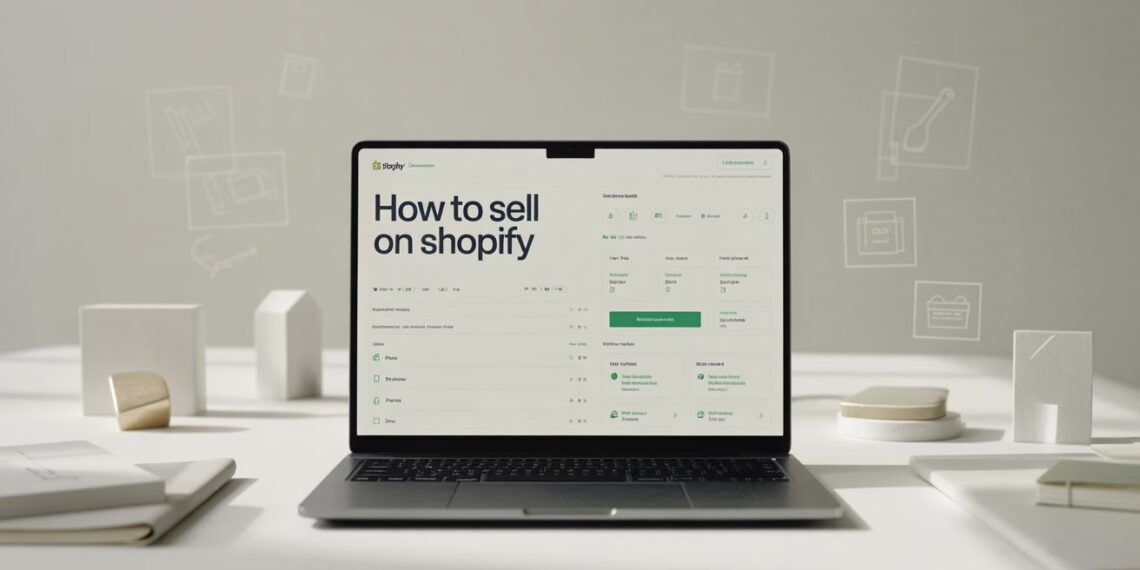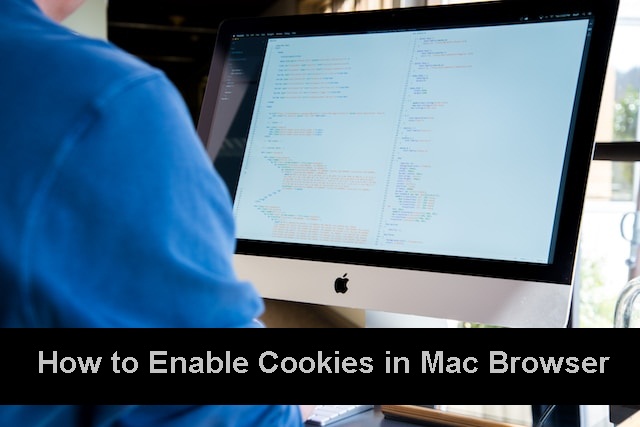Shopify remains one of the most powerful eCommerce platforms in 2025 not just because it helps you build an online store, but because it has evolved into a full business ecosystem. With AI-driven product recommendations, automated marketing tools, and seamless fulfillment integrations, Shopify now enables a single person to run what previously required an entire team.
But selling on Shopify is not just “set up and sell.” The highest-performing stores succeed because they understand why each feature matters, how buyers behave in 2025, and which strategies deliver real ROI in a more competitive eCommerce landscape.
This updated guide explains exactly how Shopify selling works today with new insights, comparison points, fresh 2024–2025 trends, and expert commentary you won’t find in old articles.
Why Shopify Is Still the Best Platform to Sell on in 2025
Before diving into the steps, here’s what makes Shopify stand out now:
1. AI-Powered Selling (2024–2025 Upgrade)
Shopify’s newer features like Shopify Magic and Shop App Boosts automatically generate product descriptions, personalized recommendations, and smart email follow-ups. In early 2025, Shopify reported increased conversion rates for stores using automated AI personalization (especially for new brands with small teams).
2. Shopify vs. WooCommerce vs. Wix in 2025
Feature |
Shopify |
WooCommerce |
Wix |
|---|---|---|---|
Ease of use |
Very easy |
Advanced |
Easy |
Speed & scalability |
Excellent |
Depends on hosting |
Good |
AI tools |
Built-in |
Plugin-based |
Moderate |
Best for |
Dropshipping, DTC brands |
Technical sellers |
Small visual brands |
Why Shopify wins: It’s the only platform designed for both beginners and scaling brands who need automation, marketing, and multi-channel selling.
How to Sell on Shopify
1. Create Your Shopify Account
Sign up on Shopify’s homepage and choose the free trial. In 2025, Shopify offers a “quick-start setup” that auto-generates your store layout based on your niche.
Expert tip: Pick a store name that’s easy to brand and rank. Short names index faster in Google Shopping.
2. Choose the Right Shopify Plan (2025 Insights)
Instead of picking the cheapest plan, evaluate your expected traffic and marketing strategy.
Which plan should you choose?
-
Starter: For selling through WhatsApp, Instagram, or TikTok only.
-
Basic Shopify: For first-time sellers building a small store.
-
Shopify: For brands investing in SEO or paid ads.
-
Advanced: For stores needing real-time shipping rates & advanced analytics.
Shopify vs. Shopify Advanced: Which is better in 2025?
If you plan to scale faster using paid traffic, upsells, or automated marketing, the mid-tier Shopify plan is the sweet spot.
3. Build Your Store With High-Conversion Design
Shopify’s 2025 themes prioritize faster checkout, mobile-first layouts, and AI-assisted personalization.
Key design elements that improve conversions:
-
Sticky “Add to Cart” button
-
One-page checkout
-
Clear price + shipping info above the fold
-
Lifestyle product images (not just studio shots)
-
Video demos (these reduce return rates)
Why this matters:
Buyers in 2025 skim, not read. A clear, distraction-free layout improves conversion rates by as much as 30–46% depending on the niche.
4. Add Your Products (High-Impact Approach)
Instead of uploading basic listings, optimize each product using this formula:
The 2025 “High-Intent Product Formula”
-
Scroll-stopping title (with one core keyword)
-
Value-driven description (explain “why this product,” not just features)
-
5–7 high-quality images or a short video
-
A comparison block (“Why ours is better?”)
-
FAQs answering PAA (“Is this product worth it?”, “How long does shipping take?”, etc.)
AI Tip:
Use Shopify Magic to draft descriptions, then refine with your brand tone for originality.
5. Configure Shipping, Taxes & Store Policies
Use Shopify’s automatic tax calculation and zone-based shipping.
In 2025, many top stores use real-time delivery estimates, increasing trust and lowering cart abandonment.
6. Connect Your Domain (2025 Branding Standards)
Choose a domain that is:
-
Under 12–14 characters
-
Easy to pronounce
-
Matches your brand keywords
Domains that look branded outperform generic ones in paid ads and SEO.
7. Install Essential Shopify Apps (2025 Updated Stack)
Must-have 2024–2025 apps:
-
Klaviyo or Shopify Email (automated email flows)
-
Judge.me or Loox (reviews with photos)
-
DSers or Zendrop (for dropshipping)
-
ReConvert (post-purchase upsells)
-
SEOmatic or Yoast (advanced SEO tools)
Avoid unnecessary apps they slow down your store.
8. SEO Optimization: Ranking on Google in 2025
Shopify SEO now includes AI-supported suggestions, but you still need strategy.
2025 SEO Checklist for Shopify
-
Optimize titles with “intent keywords” (e.g., “buy,” “best,” “affordable”).
-
Add FAQ sections to target People Also Ask questions.
-
Improve site speed (critical ranking factor).
-
Use alt text that describes the product visually.
-
Add internal links between related products & blog posts.
-
Use schema markup (Shopify does some automatically).
New 2025 trend:
Google rewards stores with expert commentary and unique usage tips, not generic descriptions.
9. Marketing & Traffic in 2025
You can’t rely on organic traffic alone. Combine:
Best traffic sources this year:
-
TikTok organic videos
-
Instagram Reels
-
Pinterest SEO
-
Meta Ads
-
Google Shopping Ads
-
YouTube Shorts
-
Shop App marketplace
Expert insight:
Stores using 2+ content channels convert better because buyers now require multiple “touchpoints” before purchasing.
10. Analyze & Improve Using Shopify Analytics
Don’t rely on “vanity metrics.” Focus on:
-
Conversion rate
-
Returning customer rate
-
Top exit pages
-
Checkout abandonment points
-
Time to first purchase
-
Customer lifetime value (CLV)
Shops that review data weekly grow 3–5x faster.
11. Deliver Excellent Customer Support
Offer support through:
-
Live chat
-
Email
-
WhatsApp
-
Instagram DMs
-
Chatbots
In 2025, customers expect replies in under 30 minutes on major channels.
12. Fulfillment & Scaling
Use:
-
Shopify Fulfillment Partners
-
3PLs like ShipBob
-
Dropshipping suppliers
-
Print-on-demand services
As orders increase, automate shipping & tracking to avoid errors.
13. Keep Up With Trending Products & Market Shifts
As of 2025, trending product areas include:
-
Smart home devices
-
Eco-friendly products
-
Personalized gifts
-
Fitness tech
-
Pet accessories
-
Beauty tech tools
Trend-driven stores grow faster but require more market research.
People Also Ask (PAA) Answers Included
Is Shopify good for beginners in 2025?
Yes Shopify is now easier because of AI-guided setup, automated emails, pre-built templates, and low-cost starter plans.
How much does it cost to start selling on Shopify?
With a domain + basic plan, most stores start at $40–$80/month. Dropshipping stores can start for even less.
Can you sell on Shopify without inventory?
Yes through dropshipping or print-on-demand.
Is Shopify profitable in 2025?
It is profitable if you choose the right niche, build high-converting product pages, and market consistently. Competition is higher, but so are the tools.
Conclusion: Is Shopify Worth It in 2025?
Absolutely. Shopify has evolved from a simple store builder into a powerful, AI-optimized business ecosystem. Whether you’re a beginner or a scaling brand, the platform gives you everything needed to build, optimize, automate, and grow without technical skills.
Building a Shopify store is easier than ever, but scaling it requires strategy. Focus on:
-
High-conversion design
-
Strong content
-
Multi-channel traffic
-
Automated marketing
-
Regular data analysis
If you stay consistent and adapt to 2025 trends, Shopify can become a long-term income engine not just an online store.









